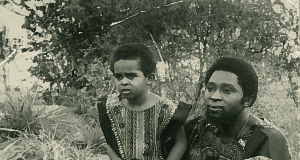Tags Walter Rodney
Tag: Walter Rodney
The T-shirt warrior: an interview with Chris Zamani, founder of the...
Chris Zamani, founder of the Hapo Zamani Za Kale clothing line, is a t-shirt designer who is on the pioneering front of trying to politicize the consciousness in the Black community through changing the kinds of people and messages on the t-shirts we are wearing. He started a line of t-shirts which immortalizes and commemorates revolutionary heroes and sheroes from the African continent, people like Nkrumah, Lumumba, Machel, Nehanda, Asantewaa, Mugabe and more.
Looking at the life of freedom fighter Obi Egbuna Sr.
My comrade Obi Egbuna’s father, with the same name, recently passed, and it was not until his old man died that I became aware of Senior’s well-documented history in the Pan African Movement. I am honored to salute the life of his father, Obi Egbuna Sr., and to enlighten our readers on some Pan Afrikan history. Here is Obi Egbuna Jr. in his own words ...
Revitalizing the demand for reparations
The Caribbean Community’s re-igniting of the reparations movement has raised the stakes to decisive governmental direct action. The 15 member regional bloc of nations established its Reparations Commission in July 2013, laying out the strategy for reparations for African enslavement and colonization and genocide of the indigenous populations of the Caribbean against the governments of Western Europe.
1,500 strong march against slavery
Shouting “Inside, outside, we’re all on the same side” and “Here comes Oakland,” five full buses and two vans left Oakland to meet up with marchers from as far away as Portland and Seattle who had already arrived at plantation San Quentin for one of the largest anti-slavery rallies in California history.
George Jackson: Forty years ago they shot him down
The 21st of August marks the 40th anniversary of the execution of George Lester Jackson. Many of the strategies and tactics that he and his fellow comrades employed in the late ‘60s and early ‘70s were used by prisoners at Pelican Bay, Corcoran and other California prisons in the recent hunger strikes.






